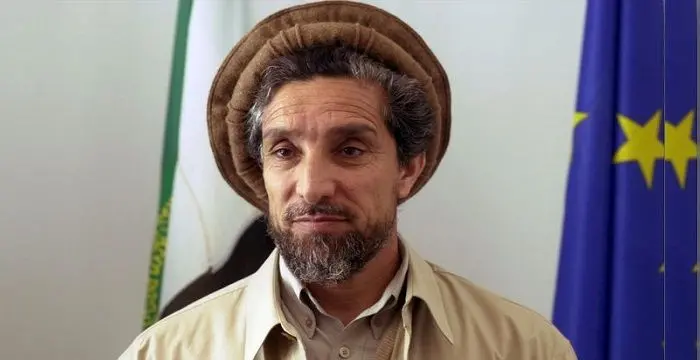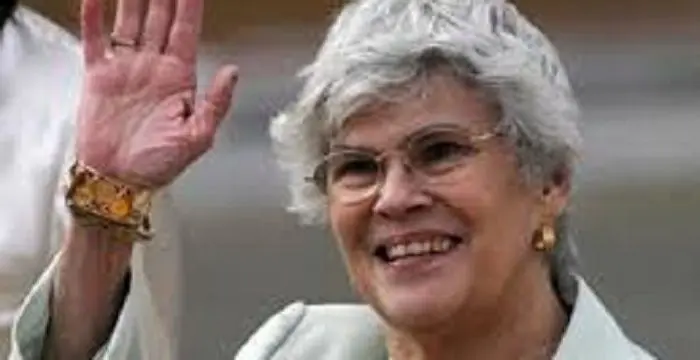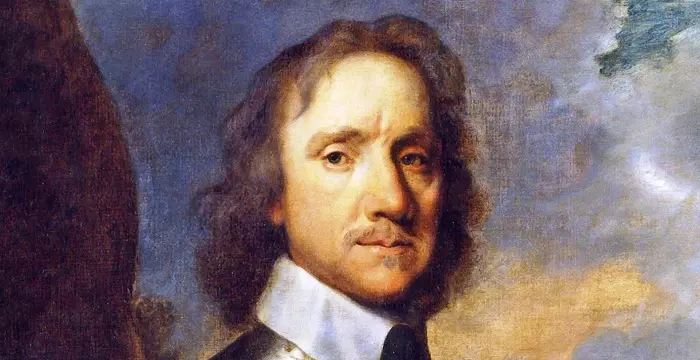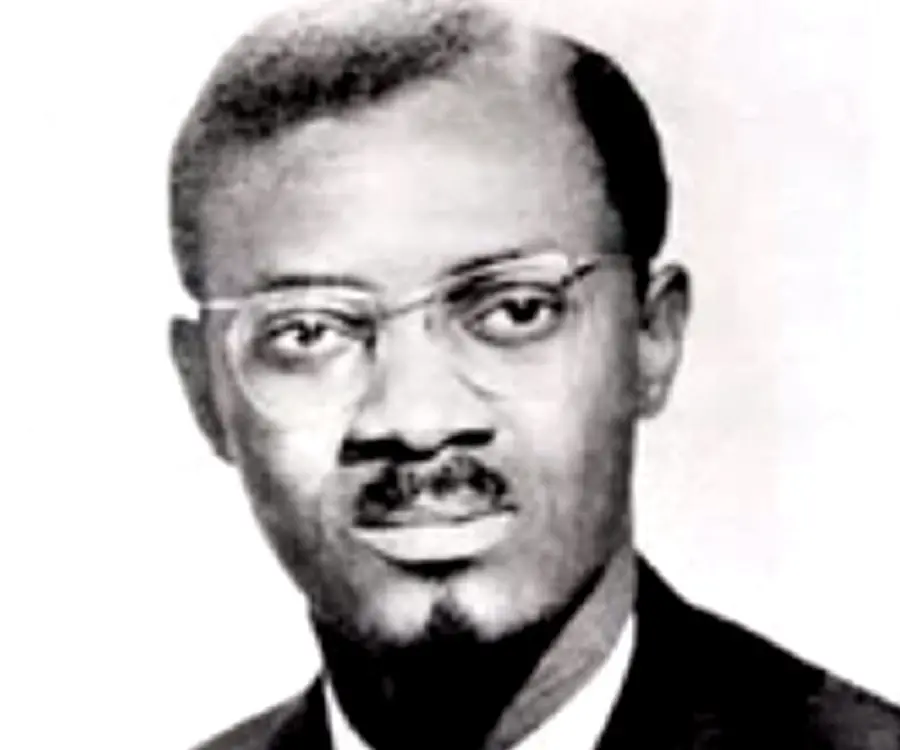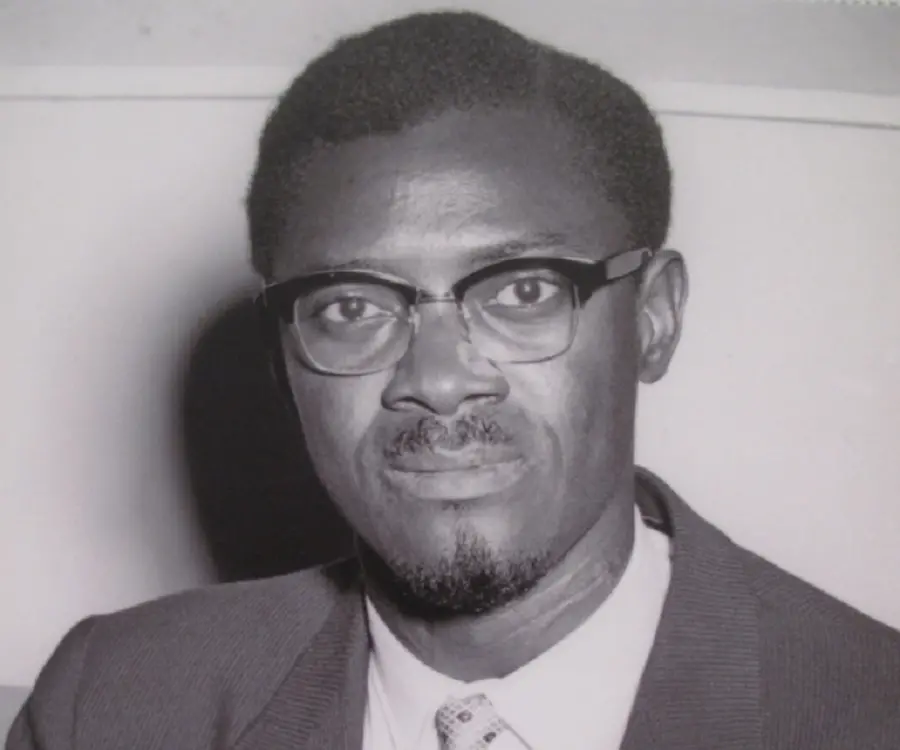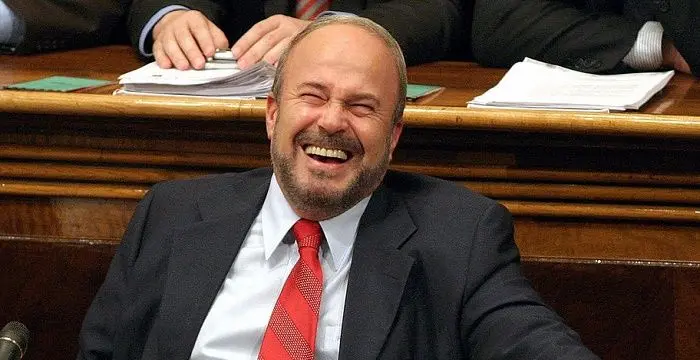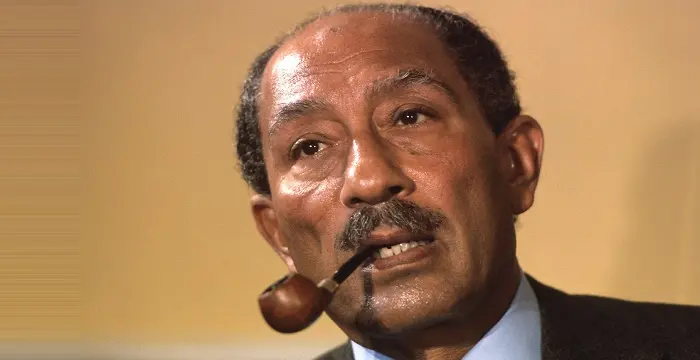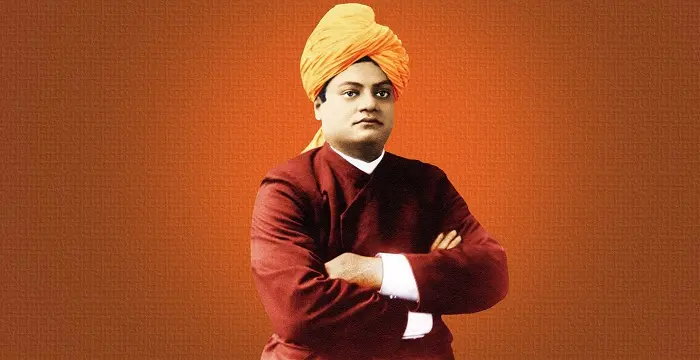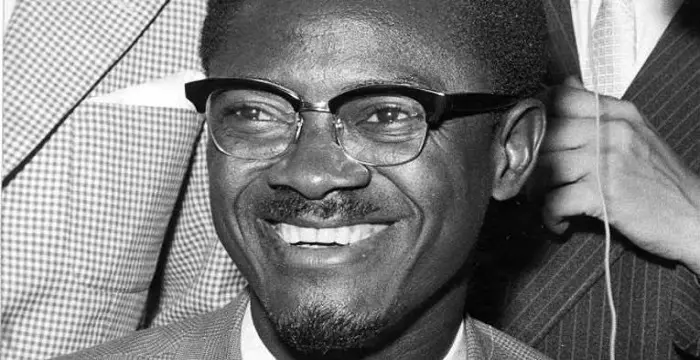
Patrice Lumumba - Political Leaders, Career and Childhood
Patrice Lumumba's Personal Details
Patrice Lumumba was the first democratically elected Prime Minister of the Republic of the Congo
| Information | Detail |
|---|---|
| Birthday | July 2, 1925 |
| Died on | January 17, 1961 |
| Nationality | Congolese |
| Famous | Leaders, Political Leaders, Prime Ministers, Political Leaders |
| Spouses | Pauline Lumumba |
| Known as | Patrice Émery Lumumba |
| Childrens | Guy-Patrice Lumumba |
| Founder / Co-Founder |
|
| Cause of death |
|
| Birth Place | Katakokombe |
| Political Ideology | Political party - Congolese National Movement |
| Gender | Male |
| Sun Sign | Cancer |
| Born in | Katakokombe |
| Famous as | Political leader |
| Died at Age | 35 |
// Famous Political Leaders
Ahmad Shah Massoud
Ahmad Shah Massoud, who was known in his native Afghanistan as the ‘Lion of Panjshir’, was a political and military leader. This biography profiles his childhood, life, military and political career and timeline.
Violeta Chamorro
VioletaChamorro was the former President of Nicaragua and is credited for ending the raging Civil War and establishing peace in the country. To know more about her childhood, career, profile and timeline read on
Oliver Cromwell
Oliver Cromwell was an was an English statesman, soldier, and revolutionary. This biography profiles his childhood, career, life, achievements and timeline.
Patrice Lumumba's photo
Who is Patrice Lumumba?
Patrice Lumumba was the first democratically elected Prime Minister of the Republic of the Congo. He was a Congolese independence leader who founded the mainstream Mouvement national congolais (MNC) party and played a pivotal role in Congo’s struggle for independence from Belgium. He had been a writer and civic organizer before he became active in politics. Born into the family of a farmer in Belgian Congo, he was a member of the small Batetela ethnic group. After completing his schooling he started working as a postal clerk and as a travelling beer salesman. Eventually he grew interested in politics and joined the Liberal Party of Belgium, where he primarily worked on distributing the party literature. His participation in political activities intensified over time and he helped found the broad-based Mouvement national congolais (MNC) and later became the organization's president. In spite of the fact that he hailed from a small ethnic group while his political rivals came from powerful and large ethnic groups, he succeeded in establishing himself as a popular politician. A passionate nationalist, he called for Congo’s independence from Belgium and became a major figure in Congo’s independence movement. He became the country’s first democratically elected Prime Minister in June 1960. His administration, however, did not last long, and his political career came to an abrupt end when he was assassinated in 1961
// Famous Prime Ministers
Edi Rama
Edi Rama is the current Prime Minister of Albania. Check out this biography to know about his childhood, life, achievements, works & timeline.
Leo Varadkar
Cam Leo Varadkar is the current Taoiseach—the Prime Minister—of the Republic of Ireland. Check out this biography to know about his childhood, family life, achievements and other facts about his life.
Fatos Nano
Fatos Nano is an Albanian politician who served as Prime Minister of Albania for several times. Check out this biography to know about his childhood, life, achievements, works & timeline.
Childhood & Early Life
Patrice Lumumba was born as Élias Okit'Asombo on 2 July 1925 in Katakokombe, Belgian Congo, to François Tolenga Otetshima, and Julienne Wamato Lomendja. His father was a farmer. He had three brothers and one half-brother.
He received his primary education from a Catholic missionary school before moving on to the government post office training school, passing the one-year course with distinction.
He started writing articles for journals during his student days and developed an interest in political activism.
Career
He started his career as a postal clerk in Léopoldville (now Kinshasa) and soon moved to Stanleyville (now Kisangani). He also augmented his income by working as a travelling beer salesman.
Eventually he became an accountant in the post office. All this while, he maintained his involvement with the Congolese press for which he regularly wrote articles on political issues.
Lumumba became regional head of the Cercles of Stanleyville and joined the Liberal Party of Belgium in 1955. He primarily worked on editing and distributing party literature.
He was on a study tour to Belgium in 1955 when he was arrested on charges of embezzlement and sentenced to two years in prison. But his sentence was commuted to twelve months and he was released in July 1956.
He became more involved in politics upon his release and in 1958 he played a key role in the founding of the broad-based Mouvement national congolais (MNC). He was later chosen as the organization’s president.
Accompanied by a team, he represented the MNC at the All-African Peoples' Conference in Accra, Ghana, in December 1958 where Lumumba further solidified his Pan-Africanist beliefs.
Nationalist fervor in the country increased and the citizens of Congo started demanding complete independence from the Belgian government. Local elections were held in December 1959 in which the MNC won a convincing majority. On 27 January 1960 Congolese independence was declared with the setting of 30 June 1960, as the independence date.
The MNC won the national elections held in May 1960 and thus the right to form a government. On 23 June 1960, Patrice Lumumba was chosen as Congo's first Prime Minister and Joseph Kasa-Vubu as its president. On 24 June the new government passed a vote of confidence and was ratified by the Congolese Chamber and Senate.
Even as the country’s citizens were rejoicing at its newly acquired independence, Lumumba took a fateful decision—he decided to raise the pay of all government employees except for the army. This led some sections of the army to rebel and the rebellions quickly spread throughout the country, leading to a general breakdown in law and order.
It was a highly chaotic time in Congo, marked by political unrest and widespread violence which led to the weakening of the government. In September, the President dismissed Lumumba from the government which led to Lumumba protesting in retaliation.
Taking advantage of the situation, Colonel Joseph Mobutu, aided by Belgian forces organized a coup d’état and incapacitated both Lumumba and the President Kasa-Vubu. Lumumba tried to escape but was captured and tortured by Katangan and Belgian officers.
Major Works
Patrice Lumumba served as the Prime Minister of the Congo for only 81 days, but he left an indelible mark in the modern political history of Africa. He was a principled man of strong character who lived and died for the values he believed in. He supported pan-Africanism and liberation for colonial territories.
Personal Life & Legacy
In 1951, he married Pauline Opangu. The couple went on to have five children, the youngest of whom was born six months after Patrice Lumumba‘s death.
After his government was deposed in a coup during the Congo Crisis, Lumumba along with a few other ministers from his newly formed independent government were arrested and tortured under the command of Katangan authorities. The men were then lined up against a tree and shot one at a time on 17 January 1961.
// Famous Political Leaders
Edi Rama
Edi Rama is the current Prime Minister of Albania. Check out this biography to know about his childhood, life, achievements, works & timeline.
Khalifa bin Zayed Al Nahyan
Sheikh Khalifa bin Zayed Al Nahyan is the current President of the United Arab Emirates (UAE). Check out this biography to know about his birthday, childhood, family life, achievements and fun facts about him.
Leo Varadkar
Cam Leo Varadkar is the current Taoiseach—the Prime Minister—of the Republic of Ireland. Check out this biography to know about his childhood, family life, achievements and other facts about his life.
Patrice Lumumba biography timelines
- // 2nd Jul 1925Patrice Lumumba was born as Élias Okit'Asombo on 2 July 1925 in Katakokombe, Belgian Congo, to François Tolenga Otetshima, and Julienne Wamato Lomendja. His father was a farmer. He had three brothers and one half-brother.
- // 1951In 1951, he married Pauline Opangu. The couple went on to have five children, the youngest of whom was born six months after Patrice Lumumba‘s death.
- // 1955Lumumba became regional head of the Cercles of Stanleyville and joined the Liberal Party of Belgium in 1955. He primarily worked on editing and distributing party literature.
- // 1955 To Jul 1956He was on a study tour to Belgium in 1955 when he was arrested on charges of embezzlement and sentenced to two years in prison. But his sentence was commuted to twelve months and he was released in July 1956.
- // 1958He became more involved in politics upon his release and in 1958 he played a key role in the founding of the broad-based Mouvement national congolais (MNC). He was later chosen as the organization’s president.
- // Dec 1958Accompanied by a team, he represented the MNC at the All-African Peoples' Conference in Accra, Ghana, in December 1958 where Lumumba further solidified his Pan-Africanist beliefs.
- // 1959 To 1960Nationalist fervor in the country increased and the citizens of Congo started demanding complete independence from the Belgian government. Local elections were held in December 1959 in which the MNC won a convincing majority. On 27 January 1960 Congolese independence was declared with the setting of 30 June 1960, as the independence date.
- // 23rd Jun 1960The MNC won the national elections held in May 1960 and thus the right to form a government. On 23 June 1960, Patrice Lumumba was chosen as Congo's first Prime Minister and Joseph Kasa-Vubu as its president. On 24 June the new government passed a vote of confidence and was ratified by the Congolese Chamber and Senate.
- // 17th Jan 1961After his government was deposed in a coup during the Congo Crisis, Lumumba along with a few other ministers from his newly formed independent government were arrested and tortured under the command of Katangan authorities. The men were then lined up against a tree and shot one at a time on 17 January 1961.
// Famous Leaders
Edi Rama
Edi Rama is the current Prime Minister of Albania. Check out this biography to know about his childhood, life, achievements, works & timeline.
Tecumseh
Tecumseh was a Native American leader of the Shawnee clan. This biography profiles his childhood, life and timeline.
Khalifa bin Zayed Al Nahyan
Sheikh Khalifa bin Zayed Al Nahyan is the current President of the United Arab Emirates (UAE). Check out this biography to know about his birthday, childhood, family life, achievements and fun facts about him.
Anwar Sadat
Anwar Sadat was the third President of Egypt and has been awarded the Nobel Prize for his peace initiatives. To know more about his childhood, career, profile and timeline read on the following biography.
Leo Varadkar
Cam Leo Varadkar is the current Taoiseach—the Prime Minister—of the Republic of Ireland. Check out this biography to know about his childhood, family life, achievements and other facts about his life.
Swami Vivekananda
Swami Vivekananda was the chief disciple of Sri Ramakrishna, and was responsible for awakening India spiritually. Check this biography to know in detail about his life, profile and timeline.
Patrice Lumumba's FAQ
What is Patrice Lumumba birthday?
Patrice Lumumba was born at 1925-07-02
When was Patrice Lumumba died?
Patrice Lumumba was died at 1961-01-17
Where was Patrice Lumumba died?
Patrice Lumumba was died in Lubumbashi
Which age was Patrice Lumumba died?
Patrice Lumumba was died at age 35
Where is Patrice Lumumba's birth place?
Patrice Lumumba was born in Katakokombe
What is Patrice Lumumba nationalities?
Patrice Lumumba's nationalities is Congolese
Who is Patrice Lumumba spouses?
Patrice Lumumba's spouses is Pauline Lumumba
Who is Patrice Lumumba childrens?
Patrice Lumumba's childrens is Guy-Patrice Lumumba
Which company or organization was founded by Patrice Lumumba?
Patrice Lumumba was the founder/co-founder of Mouvement National Congolais
What is Patrice Lumumba's cause of dead?
Patrice Lumumba dead because of Execution
What is Patrice Lumumba's political ideology?
Patrice Lumumba's political ideology is Political party - Congolese National Movement
What is Patrice Lumumba's sun sign?
Patrice Lumumba is Cancer
How famous is Patrice Lumumba?
Patrice Lumumba is famouse as Political leader
